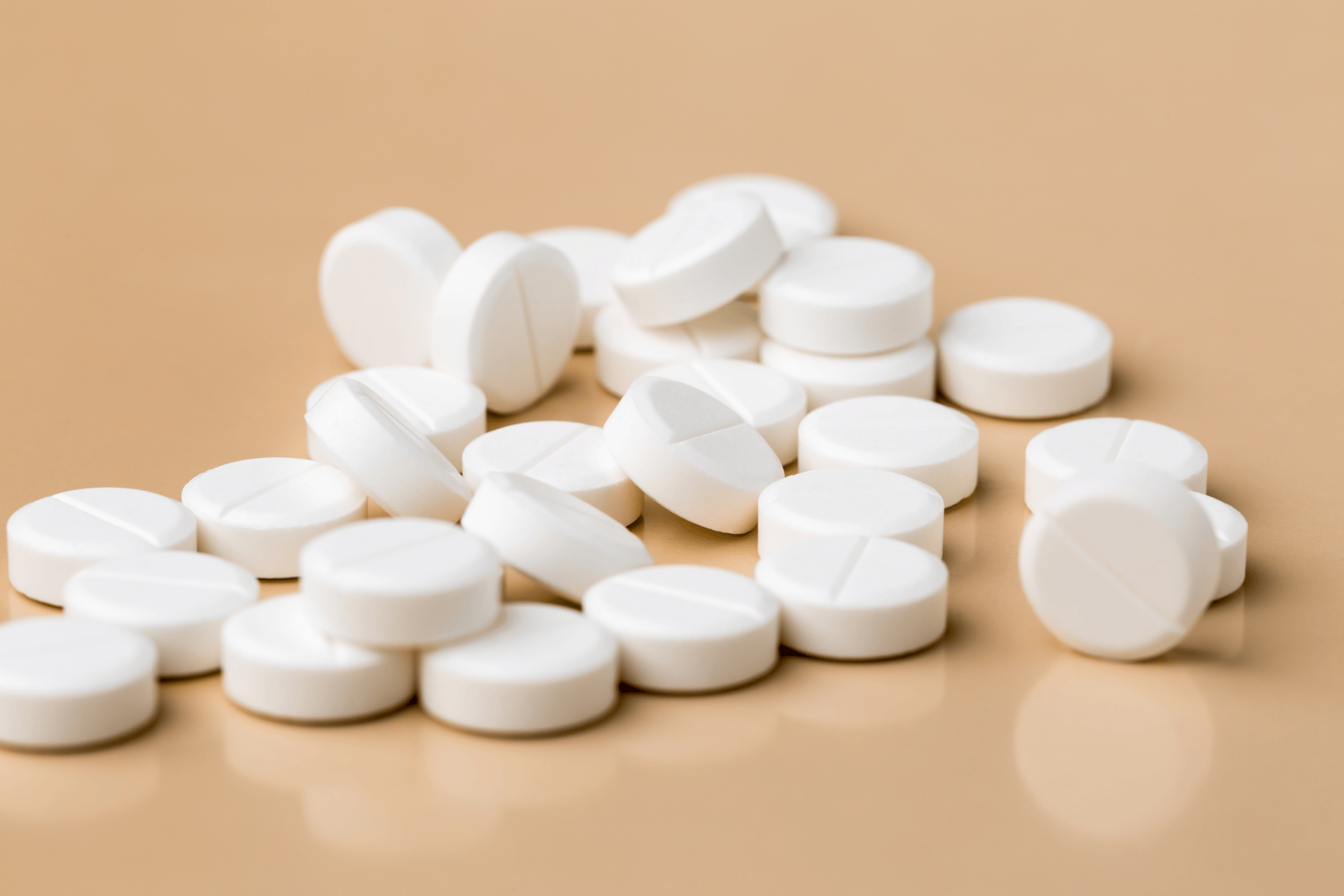Can You Take Gabapentin with Prednisone?
If you have been prescribed gabapentin and prednisone, you might wonder if it is safe to take both medications together. This is a common question since these drugs are often [...]
Read More
Medically reviewed by Alan Lucks | MD, Alan Lucks MDPC Private Practice - New York on November 18th, 2025.
No direct drug interactions exist between these medications, making co-administration generally safe when prescribed by a healthcare provider who monitors for additive effects.
Both drugs enhance central nervous system depression, potentially doubling the risk of dizziness, sedation, and cognitive impairment—especially dangerous for elderly patients or those operating machinery.
Prednisone can elevate blood glucose levels by 20-40% within hours, while gabapentin may mask hypoglycemic symptoms in diabetic patients, creating a potentially dangerous combination.
Kidney function monitoring becomes critical since gabapentin is 100% eliminated through the kidneys, and prednisone can worsen kidney disease by increasing blood pressure and fluid retention.
Abrupt discontinuation of either medication requires medical supervision—gabapentin withdrawal can trigger seizures within 12-48 hours, while stopping prednisone suddenly may cause life-threatening adrenal insufficiency.
If you have been prescribed gabapentin and prednisone, you might wonder if it is safe to take both medications together. This is a common question since these drugs are often used to treat different health conditions. Understanding how they work and their possible interactions can help you use them safely.
 What Are Gabapentin and Prednisone?
What Are Gabapentin and Prednisone?Gabapentin is a medication mostly used to treat nerve pain and seizures. It helps calm down nerve activity in the brain and body. People often take gabapentin for conditions like shingles pain, diabetic nerve pain, or epilepsy. In addition to its primary uses, gabapentin has also been explored for off-label applications, including treatment for anxiety disorders and restless leg syndrome. This versatility makes it a valuable option for many patients, as it can address multiple symptoms and improve overall quality of life.
Patients taking gabapentin may experience side effects such as dizziness, fatigue, or drowsiness, which can impact daily activities. It is important for individuals to communicate with their healthcare providers about any adverse effects they encounter. Gabapentin is usually prescribed in a gradual dosage increase to minimize side effects and allow the body to adjust to the medication effectively.
Prednisone is a type of steroid medicine that reduces inflammation and suppresses the immune system. Doctors prescribe it for many conditions, such as allergies, asthma, arthritis, and autoimmune diseases. It helps control swelling, redness, and pain. Prednisone works by mimicking the effects of cortisol, a hormone produced by the adrenal glands, which plays a crucial role in regulating various bodily functions, including the immune response and metabolism.
While prednisone can be highly effective in managing symptoms, it is not without potential side effects. Long-term use can lead to complications such as weight gain, osteoporosis, and increased susceptibility to infections. Therefore, healthcare providers often recommend tapering off the medication gradually rather than stopping abruptly, to allow the body to adjust and to minimize withdrawal symptoms. Patients are encouraged to maintain regular follow-ups to monitor their health and adjust treatment as necessary.
Gabapentin and prednisone work differently in the body, and there are no major direct drug interactions reported between them. This means, in most cases, they can be taken together safely under a doctor’s supervision.
However, both medications can cause side effects that affect your nervous system. For example, gabapentin may cause dizziness or drowsiness, and prednisone can sometimes cause mood changes or trouble sleeping. Taking them together might increase these effects for some people. It's essential to monitor how you feel when starting this combination, as individual responses can vary significantly. Some patients report heightened levels of fatigue or confusion, which can impact daily activities and overall quality of life.
If you have other health problems, such as kidney issues, diabetes, or a history of mood disorders, you should tell your doctor before starting these medications together. Prednisone can raise blood sugar levels, and gabapentin is processed by the kidneys, so your doctor might adjust doses or monitor you more closely. If you are taking other medications that also affect your central nervous system, such as opioids or benzodiazepines, it is crucial to discuss these with your healthcare provider. The cumulative effects of these drugs can lead to increased sedation or respiratory depression, which can be dangerous.
It's important to consider the timing and method of taking these medications. For instance, taking gabapentin with food can enhance its absorption and effectiveness, while prednisone is often recommended to be taken with food to minimize gastrointestinal upset. Understanding the best practices for taking these medications can help maximize their benefits while minimizing potential side effects. Always keep an open line of communication with your healthcare provider about any new symptoms or concerns that arise during treatment, as this can lead to timely adjustments in your care plan.
Always take gabapentin and prednisone exactly as your healthcare provider prescribes. Do not stop or change doses without consulting your doctor. They know your health history and can guide you on the best way to use these medicines together. It’s also crucial to inform your healthcare provider about any other medications you are taking, including over-the-counter drugs and supplements, as interactions can occur that may alter the effectiveness or increase the risk of side effects.
Dizziness or feeling sleepy
Mood swings or anxiety
Increased thirst or urination
Swelling or weight gain
If you notice any of these or other unusual symptoms, contact your healthcare provider promptly. Some patients may experience gastrointestinal issues, such as nausea or stomach pain. It’s essential to monitor how your body reacts to these medications and report any significant changes. Keeping a daily log of your symptoms can be a helpful tool for discussions with your doctor during follow-up appointments.
Because prednisone can affect your immune system and blood sugar, and gabapentin affects your nervous system, your doctor may want to see you regularly. Blood tests or other checks might be necessary to ensure your safety. Regular monitoring can help catch any potential complications early, allowing for timely interventions. Your doctor may also assess your overall health, including weight, blood pressure, and any signs of infection, which can be particularly important when taking medications that suppress the immune response.
In addition to following your doctor's instructions and monitoring for side effects, it's vital to be aware of potential drug interactions. Certain medications, such as antacids, may interfere with the absorption of gabapentin, while other drugs can exacerbate the side effects of prednisone. Always discuss any new medications or changes in your regimen with your healthcare provider to avoid complications. This proactive approach can help ensure that your treatment remains effective and safe.
Incorporating a balanced diet and regular exercise into your routine can significantly enhance the effectiveness of your treatment. A healthy diet can help manage potential weight gain associated with prednisone, while physical activity can improve your mood and overall well-being, counteracting some of the side effects of gabapentin. Staying hydrated and getting adequate sleep are also essential components of maintaining your health while on these medications. Consider discussing lifestyle changes with your healthcare provider, who can offer personalized recommendations tailored to your specific needs.
Sometimes you need quick answers about your medications or health concerns without waiting for an in-person visit. Telehealth services make it easy to talk to real doctors from home, any time you need.
Doctronic.ai offers free AI doctor visits that provide fast, reliable health information based on the latest medical research. You can ask about taking gabapentin with prednisone and get clear advice in seconds. If you want to speak with a real doctor, Doctronic also offers affordable video visits 24/7 in all 50 states, making it simple to get personalized care without leaving your home.
Visit Doctronic.ai to try their AI doctor or schedule a video visit today.
 Key Points to Remember About Gabapentin and Prednisone
Key Points to Remember About Gabapentin and PrednisoneGabapentin and prednisone can usually be taken together safely under medical supervision.
Both medications may cause side effects that affect mood, sleep, or nervous system function.
People with certain health conditions should be extra cautious and consult their doctor.
Regular monitoring helps catch any problems early.
Telehealth services like Doctronic.ai make it easier to get quick, trustworthy medical advice.
There are no major direct interactions between gabapentin and prednisone. However, they may increase side effects like dizziness or mood changes when taken together.
Do not stop either medication without talking to your doctor. Dizziness can be a side effect, but your doctor can help adjust your treatment safely.
Yes, prednisone can raise blood sugar levels. If you have diabetes, your doctor will monitor your blood sugar closely while you take prednisone.
Yes, Doctronic.ai provides AI-powered medical information based on the latest research and offers access to real doctors for personalized care. It is a trusted tool for quick, reliable health support.
The length of treatment depends on your condition and your doctor's plan. Always follow your healthcare provider’s instructions and discuss any concerns with them.
If you have questions about your medications or want to talk to a healthcare provider quickly, consider using Doctronic.ai. Their AI doctor can provide instant answers, and their video visits connect you with licensed doctors anytime.
Remember, never start, stop, or change your medication without talking to your healthcare provider first. Your safety comes first.
While these medications can be taken together safely, the combination requires careful monitoring for enhanced side effects and regular lab work to check blood sugar and kidney function. Never adjust doses or stop either medication without medical guidance due to serious withdrawal risks. If you're considering this combination or experiencing concerning symptoms, Doctronic can provide personalized medical guidance.
If you have been prescribed gabapentin and prednisone, you might wonder if it is safe to take both medications together. This is a common question since these drugs are often [...]
Read More